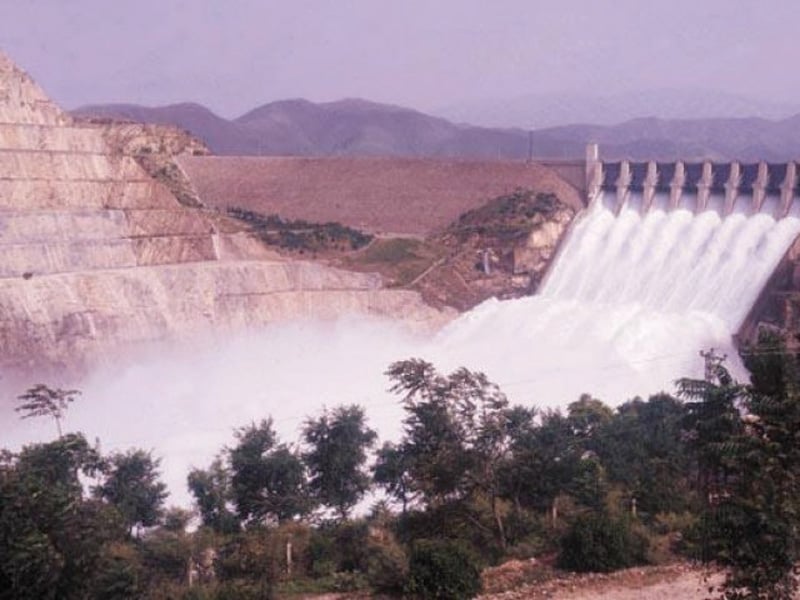ISLAMABAD: On Thursday, the government cleared a multimillion-dollar compensation package for the Chinese people who were killed in a terrorist attack. They also chose to spend Rs70.5 billion from Prime Minister Shehbaz Sharif’s and lawmakers’ discretionary budget on hydroelectric power projects.
 The decisions were made by the Economic Coordination Committee (ECC) of the cabinet, which also accepted a Rs89 billion extra budget. The flexible budget was used to get a big chunk of money—Rs70.5 billion—for the building of three hydroelectric power projects.
The decisions were made by the Economic Coordination Committee (ECC) of the cabinet, which also accepted a Rs89 billion extra budget. The flexible budget was used to get a big chunk of money—Rs70.5 billion—for the building of three hydroelectric power projects.
The ECC let Pakistanis living outside of Pakistan off the hook for breaking investment policy. This seemed like an odd choice because it meant that policy violations were not punished.
The ECC agreed to pay the families of the five Chinese workers who were killed in a terrorist attack two months ago $2.6 million, or Rs717 million. The workers were working on the Dasu hydropower project. Terrorists have hit the building twice.
So far, Pakistan has paid the Chinese workers on the World Bank-funded Dasu project $14.2 million in back pay. The most recent payment is more than the last one made three years ago. Each person who died would get $516,000, which is about Rs143.4 million, for their family.
But the government only agreed to pay Rs2.5 million, or $8,929, to the family of a Pakistani man who was also killed in the attack.
An extra grant of Rs70.5 billion was cleared by the ECC to finish work on hydropower projects. The Mohmand Dam, the Dasu Hydropower Project, and the Tarbela 5th Extension Project would all get the money.
The Water and Power Development Authority (Wapda) asked for an extra Rs110 billion, but the ECC only agreed to give them Rs70.5 billion. The money was taken from the budgets set aside for plans run by lawmakers and special projects run by Prime Minister Shehbaz.
For the hydropower projects, the Cabinet Division gave up Rs28.8 billion in plans for lawmakers. They gave up Rs35 billion, which included Rs30 billion from the PM’s plan to solarize farm tube wells.
The hydropower projects got an extra Rs4.8 billion from the PM’s Initiative for Green Revolution.
A little over Rs2 billion from the PM’s Sports Initiative was also used for power projects. Wapda was given Rs4.8 billion from the Prime Minister’s Initiative for Women Empowerment to use for these projects.
The ECC gave its approval for $8 million from the pension funds of Roosevelt Hotel workers to be used to run the New York hotel. The money was given even though the office in charge of privatization didn’t want it.
When Roosevelt Hotel needed money four years ago, the federal government let PIA borrow $142 million to pay for it. Included in it was $18 million to pay off the hotel workers’ pension debts.
The leaders of PIA Investment Limited asked that $8 million in salary obligations be moved to cover the company’s running costs.
Because the debts had already grown to $24.5 million and PIA did not have the money to pay them off, the privatization ministry was against the move.
A meeting of the Roosevelt Hotel’s board in Paris was not approved by the Privatization Commission. This was because the company was under a lot of stress and was having trouble paying its employees. It also didn’t want former PIA workers to be hired at the hotel.
Investing from other countries
In a statement, the finance ministry said that the ECC also looked at a summary of the Finance Division’s plan to change the rules for foreign equity investments to make it easier for the country to sell IT.
The group agreed to the changes and excused anyone who had broken the rules in the past.
The finance minister wanted to get around some of the rules in the equity investment policy when investing abroad. They also wanted to make investments that were already made under the proposed categories legal, no matter how much money was involved.
IT businesses that want to export can now invest in foreign companies using their Exporters Special Foreign Currency Accounts (ESFCAs) and Special Foreign Currency Accounts (SFCAs). This is because of the new policy.
For IT companies that haven’t started exporting yet or don’t have enough money in their ESFCAs or SFCAs, they can send up to 100% of their average net profit from the last three financial years, or $100,000, from the inter-bank market to invest abroad.
Also, the rule that said export-oriented IT companies could only set up and buy one entity per state has been loosened. But if a person wants to buy more than one company in the same area, they will have to explain why they want to do so.
The ECC agreed that Rs1.1 billion from the planning ministry’s development budget could be used to pay off the debts of the now-defunct Earthquake Reconstruction and Rehabilitation Authority (ERRA). In the past month, the ECC has paid Rs6.9 billion to pay off ERRA debts.
The ECC gave Rs2.2 billion to provide gas to the Pakistan Steel Mills, which were shut down. Even though the mill hasn’t been open since 2015, the oven still gets 2 million cubic feet of gas every day.
It was also decided that an extra Rs12.1 billion would be given to the program to vaccinate children.










































